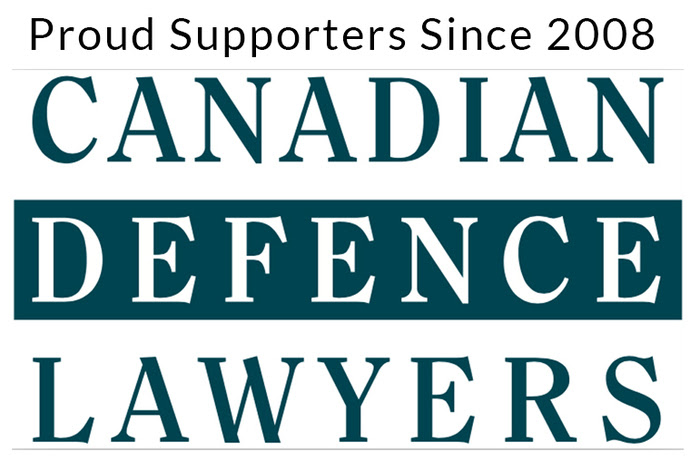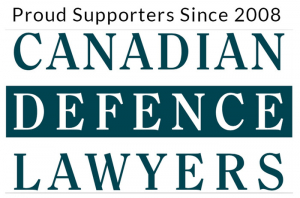The COVID-19 pandemic has upended our day-to-day lives. In the outdoor/adventure industry, it has led to the cancellation of pre-scheduled bookings, trips, and events, either pro-actively by companies (to limit possible exposure and spread of the virus), pursuant to orders of governmental health officials or due to the closure of international borders preventing customer access.
While trip/booking cancellations can happen every season for one reason or another, this is the first time in living memory that the industry has effectively shut down and businesses are confronting their legal obligations to their customers and their deposits en mass. At the same time, businesses have likely already incurred expenses (non-refundable) in respect of such trips/bookings and general operations, such as permits, insurance, equipment and consumables like food and fuel. What is a business to do when their customers seek a refund of their deposit, for a situation that is entirely out of a business’s control?
In B.C. and the other western Canadian provinces, there are no laws that deal directly with, or prescribe the content of a business’s refund, exchange, or return policies. What this means is that business are free to set their own policies when it comes to money received from customers and under what circumstances they are obligated to return it. However, there is also provincial legislation that can impact how such policies operate, specifically if the business involves future performance contracts or continuing services contracts.
If your business has accepted a deposit for future events or offers a pre-paid package of classes, you may be legally liable to refund some or all of the amount of money received for those events or classes.
Legal Obligations in British Columbia
FUTURE SERVICE CONTRACTS
In British Columbia, the Business Practice and Consumer Protection Act (the “Act”) mandates that customers who enter into “future service contracts” may be entitled to receive the money they pay to the company back upon cancellation, in certain circumstances. A “future service contract” is one where the customer does not pay in full upfront, or does not get the contracted goods or services immediately.
The Act provides guidance on how businesses should approach money received for future service contracts. An example would be a deposit given to a guiding company for a trip scheduled to take place later in the year.
First, the Act prescribes certain requirements for a future service contract. Such a contract must contain information including:
- the supplier’s information;
- the date the contract was entered into;
- the description of the goods or services;
- the cost of the items;
- the taxes and shipping charges;
- the description of customs duties, brokerage fees or additional charges;
- the terms of payment;
- the total price under the contract, including the total cost of credit
- the description and dollar value of any trade-in (if applicable);
- (if credit is extended or arranged by the supplier) a description of the subject matter of any security interest;
- notice of the consumer’s rights of cancellation, if any;
- the restrictions, limitations or other terms or conditions that may apply to the supply of the goods or services;
- the supply date and the date on which the supply of goods or service will be complete; and
- (if there are periodic payments) the amount of each periodic payment.
If this information is not included, or if the customer did not receive a copy of the contract within 15 days of it being entered into, the customer may be within their rights to cancel the contract and seek a refund of their deposit. Additionally, it is important to remember that a future performance contract is not binding on the customer if the business gives, or offers to give, a rebate/discount or other value to the consumer in consideration for the customer aiding the business in making a sale to another person.
Under the Act, if a future performance contract is cancelled by the consumer because it does not contain all the requisite information (or if the customer did not receive a copy of the contract within 15 days of entering into the contract), then the business must refund to the customer all money received in respect of the contract within 15 days of the customer giving the notice of cancellation. However, if the future performance contract does contain all of the information and a copy was delivered to the customer within 15 days of entering into the contract, then such a cancellation right does not exist and the business’s obligations for a refund is instead governed by what is stated in the company’s refund policy.
Thus, if your business offers pre-booked events/services, it is crucial to have a clearly drafted contract that contains all of the prescribed information. This way, as long as the contract is delivered to the customer within 15 days of execution, your business will satisfy the requirements under the Act and not trigger its cancellation provisions, allowing for your own refund policies to govern.
CONTINUING SERVICE CONTRACTS
Another type of contract that may be encountered in the outdoor/adventure industry is the “continuing service contract”. This is a contract that provides for the supply of services by reference to a number of hours or a number of sessions and must state, among other things, the period of time over which the customer can reasonably expect to receive the services. An example would be where a ski hill offers a package of 10 ski lessons over the course of a season. The customer would either pay a deposit for the package or pay for all of the lessons upfront.
The Act allows a customer to cancel a continuing service contract by 1) giving notice within 10 days after the date the customer receives a copy of the contract, or 2) by giving notice and reason for cancellation if there has been a material change in the circumstances of the customer or the services provided by the business. “Material change in the services provided” includes when a business is unable to reasonably complete the services.
This may be relevant as it is arguable that COVID-19 has led to a “material change”. If a business can no longer offer the contemplated services pursuant to the contract (for example, by government mandated shutdown), then the business must refund the customer (within 15 days of receiving the notice) all of the money the customer has paid under the contract. If the customer cancels the continuing service contract partway through its term, then the business is to refund to the customer an amount determined by the formula portion of all cash payments = (unused services) / (total services) as per the Consumer Contracts Regulation B.C. Reg. 272/2004, Section 3(1). For example, in Frroku v. Chantal Collin (Doing Business As Renew You Fitness and Nutrition), 2018 BCCRT 568, the applicant bought a 25 session personal training program from the respondent, and wanted to cancel the services after 11 sessions. The tribunal determined that it was within the right of the applicant to cancel and ordered the business to refund the applicant for the remaining 14 unused sessions.
In contrast, if the business is planning to proceed with the activity as usual but the customer is unable to attend (for example, because of an inability to cross international borders), then the business will be able to retain its costs, which is defined as 30% of the portion determined of all cash payments made under the contract, an must refund the remainder. If the customer has already used some of the services, then the business will only need to refund the pro-rata unused portion minus its costs.
In other words, if the customer cancels the continuing service contract due to a material change in the customer’s circumstances, then the business must refund the customer, within 15 days of receiving the notice, all money for unused sessions pro-rata under the contract less the prescribed costs. However, if the customer cancels due to a material change in the business’s circumstances, then the business must refund all money paid for unused services pro-rata under the contract.
Legal Obligations in Saskatchewan
The Consumer Protection and Business Practices Act (the “Saskatchewan Act”) and The Consumer Protection and Business Practices Regulations, c C-30.2 Reg 1 (the “Saskatchewan Regulations”) govern “future performance contracts” and “personal development services contracts” in Saskatchewan. The Saskatchewan Act and the Saskatchewan Regulations provide guidance on refunds/deposit cancellations when these types of contracts are cancelled. A supplier’s refund obligations vary depending on the type of contract and the reason for cancellation.
FUTURE PERFORMANCE CONTRACTS
“Future performance contract” is defined and treated similarly to “future service contracts” in British Columbia. A “future performance contract” is a contract for which delivery of the goods or services, or payment in full for those goods and services, is not made at the time the contract is made or partly executed. The Saskatchewan Act also includes contracts for which “performance” is not made at the time the contract is made or partly executed as future performance contracts.
Future performance contracts must contain certain information prescribed in the Saskatchewan Regulations, including the supplier’s cancellation, return, exchange and refund policies, if any, related to the contract. The supplier must provide the consumer with a copy of the future performance contract within 15 days of entering into such contract. A consumer can cancel a future performance contract within one year of entering into the contract if:
- The supplier does not provide a copy of the contract to the consumer within 15 days of entering into the contract; or
- The contract does not contain the prescribed information.
The Saskatchewan Regulations provide the consumer with additional cancellation rights in the following situations:
- In the case of goods, the supplier does not deliver the goods within 30 days after:
- the delivery date specified in the contract; or
- an amended delivery date agreed to in writing by the consumer and the supplier;
- In the case of services (except for travel or transportation services), the supplier does not begin the services within 30 days after:
- the commencement date specified in the contract; or
- an amended commencement date agreed to in writing by the consumer and the supplier.
A future performance contract is cancelled by giving notice of cancellation in accordance with the Saskatchewan Regulations. If the contract is cancelled for one of the aforementioned reasons, the contract is cancelled as if it had never existed and the supplier must refund all consideration paid by the consumer in connection with the contract within 15 days of cancellation. The consumer must also return any goods that have been delivered to them within 15 days of the later of the cancellation of the contract or delivery of the goods. If the contract is cancelled for some other reason, refunds would be dealt with in accordance with the terms of the contract.
PERSONAL DEVELOPMENT SERVICES CONTRACT
A “personal development services contract” is a contract for “personal development services” that requires advance payment for the services being provided. “Personal development services” is defined broadly under the Saskatchewan Act as services related to any of the following:
- health, fitness, dieting or matters of a similar nature;
- modelling and talent, including photo shoots relating to modelling and talent, or matters of a similar nature; and
- martial arts, sports, dancing or similar activities.
“Personal development services” also includes facilities used by a consumer for any of the services mentioned above that provide for instruction, training or assistance with respect to such services.
Personal development services contracts must be in writing, cannot be for a term greater than two years and must contain information prescribed in the Saskatchewan Regulations. The supplier must provide the consumer with a copy of the personal development services contract within 15 days of entering into such contract. A consumer can cancel a personal development services contract by giving written notice in the following situations:
- Without reason, within seven days after the later of:
- Receiving the written copy of the contract; and
- The day on which all services contracted for are available to the consumer (calculated only using days on which the supplier is open for business);
- Within one year after the date on which the consumer entered into the contract if the copy of the contract provided to the consumer does not contain the prescribed information; and
- At any time if there has been a material change in the circumstances of the consumer or the services provided by the business. “Material change in the services provided” includes when the services are no longer available because of a “substantial change” in the supplier’s operation. It is possible that COVID-19 constitutes a “material change” giving the consumer the right to cancel the personal development services contract.
The supplier’s refund requirements depend on the event giving rise to cancellation. If the contract is cancelled as a result of (a) or (b) above, the supplier must refund all consideration paid by the consumer in connection with the contract within 15 days of cancellation. If the contract is cancelled by reason of a material change in the circumstances of the consumer, the supplier must refund 70% of all payments made under the contract prorated based on the number of days remaining in the term of the contract. If the contract is cancelled by reason of a material change in the services provided by the supplier, the supplier must refund all payments made under the contract prorated based on the number of days remaining in the term of the contract.
OTHER CONSIDERATIONS
Also potentially relevant for businesses is whether their contracts contain a force majeure (or “Act of God”) provision. A force majeure clause addresses what occurs when certain triggering events makes performance of contractual obligations impossible. For example, if the performance is made impossible due to various natural disasters – or possibly epidemics, if the force majeure clause includes such events – then the force majeure clause will trigger and provide direction regarding the contracting parties’ obligations to each other.
Depending how a force majeure clause is drafted, it can excuse non-performance of contractual obligations and address issues related to compensation and time for performance during the period of force majeure. With that said, it is important to note that the Act specifically prohibits the waiver or release of a customer’s right, benefits or protection under the Act unless explicitly permitted by the Act to do so. As such, in the event that a force majeure provision is triggered, the business may nevertheless be liable to the customer for the refund of the deposit or any other amounts paid under the contract if the Act applies to that particular contract/circumstance (as discussed above).
Further, if there is no force majeure clause, the legal doctrine of frustration of contracts may apply in circumstances where the performance of the contract is a thing radically different from which was originally undertaken.
A frustrated contract will generally result in the contract becoming unenforceable. Most often, this will have the effect of terminating the contract. If a contract is frustrated, then the Frustrated Contract Act (British Columbia) (the “FCA”) may govern, unless the contract itself explicitly addresses risk allocations (i.e. who bears the risk of non-performance if the contract does get frustrated).
What must be done with a customer’s deposit if the contract is frustrated? On one hand, Section 5(2) of the FCA sates that, with certain exceptions, every party to a contract that is frustrated is entitled to restitution from the other party for benefits created by the parties’ part performance. In a case known as KBK No. 138 Ventures Ltd. v. Canada Safeway Ltd., 1999 CanLII 5876, the BC Supreme Court held that a party paying a deposit has partly performed a contractual obligation, and is entitled to restitution from the other party in that (full) amount.
On the other hand, Section 6(1) of the FCA states that a person who has partly performed a contractual obligation is not entitled to restitution if there is:
- a course of dealing between the parties to the contract,
- a custom or a common understanding in the trade, business or profession of the party so performing, or
- an implied term of the contract
to the effect that the party performing should bear the risk of loss.
It could thus be argued that in the outdoor/adventure industry – where businesses and operators are required to incur substantial non-refundable costs upfront and prior to trip/event departure – there is a course of dealing, or an implied term of the contract, that the customer at all times bears the risk of losing their deposit if the trip does not proceed. This is particularly so if the business’s cancellation and refund policies outright state such an outcome. Further, depending on how such policies are written, they could perhaps be said to explicitly address risk allocation and thus remove the contract from the FCA altogether.
Finally, regarding frustrated contracts, the disruption in question that has caused the frustration must be permanent, and not of a temporary or transient nature. For example, in Allen v. Taku Safari Inc., 2003 BCSC 516, the plaintiff was obliged to make his way to Alaska to participate in a guided mountain goat hunt. However, due to the events of 9-11, his flight was delayed. He brought an action against the guiding company for the return of his deposit. The court held that even though the plaintiff’s inability to arrive in Alaska as scheduled was outside of his control, this did not frustrate the contract. It only served to delay the contract’s performance – not make it impossible. Thus, the mere delay in a trip/excursion does not necessarily frustrate a contract.
Conclusion
Most outdoor adventure businesses will have their own refund policies which are disclosed to their customers at the time of contracting. It is important to review the terms of the refund policy carefully to determine a business’s legal obligations, as stated in that contract. While businesses dealing with future performance contracts cannot contract out of the Act so long as the contract is validly drafted and delivered within the prescribed time, the business’s refund policy will govern their obligations vis- à-vis customer deposits and other matters in the event of a cancellation. Those contracts that are governed by the Act may require partial or full refund of pre-paid deposits. Depending on the situation, the legal concepts of force majeure and frustration of contract may also come into play. Overall, the question of deposit refunds is highly fact-specific and depends on the content of the agreements in place between the parties.
Beyond these legal questions are an outdoor/adventure company’s business decisions. From a customer loyalty and reputation perspective, it may sometimes be advisable to offer customers partial deposit refunds or credit towards a trip next year, regardless of what an iron-clad refund policy may state. In an industry with already tight margins, any loss of potential revenue will always give pause, especially when some expenses have already been incurred. The long-term benefit, however, may pay dividends.
Finally, it may be worthwhile for an outdoor/adventure business to carefully examine its own supplier contracts, as a means to manage its own expenses and sunk costs. Just as customers may seek a refund of their pre-paid deposits due to COVID-19, businesses too may be able to look to the same legal concepts of frustration and force majeure when working with their own suppliers.
Note: This article is of a general nature only and is not exhaustive of all possible legal rights or remedies. In addition, laws may change over time and should be interpreted only in the context of particular circumstances such that these materials are not intended to be relied upon or taken as legal advice or opinion. Readers should consult a legal professional for specific advice in any particular situation.







